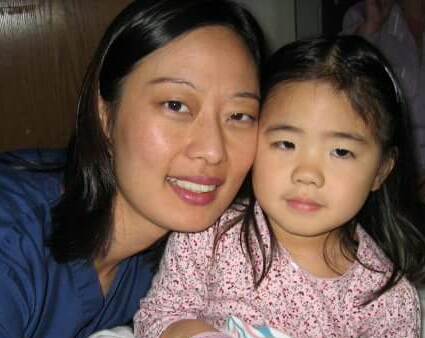
Dr. Hetty Chung has spent the last 14 years at her private practice in New Hyde Park helping patients as an OB-GYN.
But around the beginning of 2015, Chung said, she herself became a patient when she went into kidney failure and now needs a kidney transplant for a second time.
She said that although over 100 potential donors have come forward to donate to her, it is difficult to find a direct match because of her high level of antibodies, the result of treatment for a previously diagnosed lupus condition.
“Because of that, it’s literally a needle in a haystack to try and find that match,” said Chung, a Manhasset resident. “The way [doctors] describe it is the only way to find a match is a paired match or swap.”
A paired kidney exchange, or a kidney swap, occurs when a kidney donor is medically able to donate but incompatible with the recipient, so the donor must exchange kidneys with another donor and recipient, according to the Johns Hopkins Comprehensive Transplant Center.
Chung has lived on Long Island most of her life, having moved to Great Neck when she was 10 years old.
After attending Lakeville Elementary School, she said, she moved on to Great Neck South Middle School and graduated from South High School in 1990.
Chung said she attended Columbia University and graduated with a bachelor’s degree in biology and Latin.
During high school, she said, she remembers going from “doctor’s office to doctor’s office” trying to find an explanation for a “butterfly rash” she had and the fatigue she was experiencing.
She said after blood tests revealed antibodies in her system, lupus was diagnosed. She was 17.
“Nobody in my family knew what that was,” Chung said. “Even in my college years when I started to attend Columbia, I just knew it was this vague disease.”
She said one of the biggest concerns after her diagnosis was whether she would be able to have children.
After a doctor had told her he was not sure if she would able to, Chung said, she knew she had to follow her childhood ambition of becoming a doctor.
“At that point it devastated my world,” she said. “I knew in my mind I wanted to be an OB-GYN and help somebody like me who has this problem.”
“I thought ‘you have to be a solution to this,’” Chung added.
After graduating from Columbia, she said, she went to medical school at the SUNY Health Science Center at Brooklyn.
Chung said it was during her fourth year in medical school when “everything came crashing down.”
She was diagnosed with acute kidney failure.
Despite her condition, she said she started her residency at North Shore University Hospital in Manhasset while on dialysis.
After about two months, Chung said, she decided to step away from her residency after being in what she described as “horrible shape.”
“My residency director said they would save my residency spot, which was really gracious of him,” she said. “They waited for me until I got my transplant.”
In October 1998, Chung said, her sister, Helen Jhong, donated a kidney to her. She was 26.
She said after the transplant, she returned to complete her obstetrics-gynecology residency.
“I’d always wanted to do this and I couldn’t imagine doing anything else,” Chung said. “I was determined to go on.”
She said she finished her residency in 2003 and began working at her private practice in New Hyde Park soon after.
During that time, Chung said, she married Michael Kim, but knew from working as an OB-GYN, that she would have issues having a child given her health.
She said half of the professionals she spoke with said she would be able to have a child, while the other half said that she could potentially worsen her kidney function.
Chung said that after years of attempting to have a child, she began looking into surrogacy.
Nearly four years ago, through a surrogate, she said, her daughter, Isabella, was born.
“Everything wound up being great,” Chung said.
She said 26 days after Isabella was born, she returned to work, but in the beginning of 2015, her kidney went into “complete failure.”
Chung said for the past year and seven months, she has been hooking herself up to a dialysis machine four nights a week.
Although she is young, Isabella is aware her mother needs dialysis, Chung said.
“It definitely does impact her but I also think she understands that mommy has to do it,” she said. “I’m sure it’s hard on her at times.”
While doctors have not given her a timetable on when she would need to find a kidney donor, she said they have told her it was “optimal” to get a transplant as soon as possible.
Chung said donors don’t necessarily need to match her “O+” blood type to be able to donate a kidney because of the opportunity for a kidney swap.
“The honest truth is that’s literally the only way they will save my life, by doing that swap,” she said. “They will not only save my life but also save other people. These are other people finding a difficulty matching too.”
Chung said it was important for people to know that donors can live a “healthy, normal life” with one kidney, as well as still have children.
Those interested in donating a kidney can begin the screening process by completing a survey at https://www.surveymonkey.com/s/Be-a-living-donor or by calling 212-659-8024.
Those interested can also go to kidneyregistry.org to learn more about paired kidney donations.






